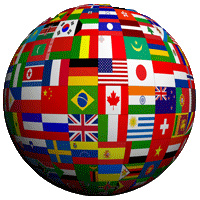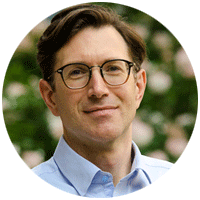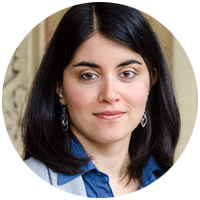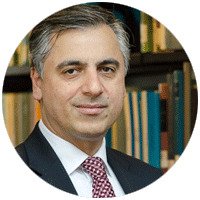In this edition, opinion pieces, interviews and articles featuring Ron Niezen, Richard Gold, Robert Leckey, Marie Manikis, Payam Akhavan, Frédéric Mégret, and Fayyaz Baqir. Plus good news about Armand de Mestral, Andrea Bjorklund, Kun Fan, Stephen Smith and Sébastien Jodoin.
Awards & Announcements
|
Is the United Nations Broken?
Ronald Niezen, Sapiens, 1 November 2017
 Anthropologists turned the U.N. into a field site. Their studies highlight the U.N.’s fragility, but we shouldn’t give up on the organization just yet.
Anthropologists turned the U.N. into a field site. Their studies highlight the U.N.’s fragility, but we shouldn’t give up on the organization just yet.
When the United Nations General Assembly convened its annual meeting this September, amid growing nuclear tensions between the U.S. and North Korea, U.S. President Donald Trump criticized the U.N. for being overly bureaucratic. … [But] threatening to withdraw funding from the U.N. in response to its inadequacies, as Trump is so fond of doing, is not the solution. Now more than ever, we need the U.N. to intervene in what are perhaps the greatest challenges the world has ever faced. Keep reading…
Point of View: Motivating participation in open science by examining researcher incentives
Sarah E. Ali-Khan, Liam W. Harris, and E. Richard Gold, eLIFE, 30 October 2017
 Support for open science is growing, but motivating researchers to participate in open science can be challenging.
Support for open science is growing, but motivating researchers to participate in open science can be challenging.
This in-depth qualitative study draws on interviews with researchers and staff at the Montreal Neurological Institute and Hospital during the development of its open science policy. Using thematic content analysis, we explore attitudes toward open science, the motivations and disincentives to participate, the role of patients, and attitudes to the eschewal of intellectual property rights. To be successful, an open science policy must clearly lay out expectations, boundaries and mechanisms by which researchers can engage, and must be shaped to explicitly support their values and those of key partners, including patients, research participants and industry collaborators. Keep reading…
What the Future Holds for NAFTA – In Conversation with Andrea Bjorklund
Wharton Business Radio Highlights, 23 October 2017
 The latest round of North American Free Trade Agreement re-negotiations wrapped up recently with Canada and Mexico reportedly frustrated by US demands.
The latest round of North American Free Trade Agreement re-negotiations wrapped up recently with Canada and Mexico reportedly frustrated by US demands.
Wharton Business Radio host Dan Loney looked at recent [NAFTA] developments with Matt Gold, Professor at the Fordham University School of Law and Former Deputy Assistant U.S. Trade Representative for North America, and Andrea Bjorklund, Faculty of Law Professor at McGill University and Former Member of the NAFTA Arbitration Team at U.S. Department of State, on Knowledge@Wharton. Listen to the podcast…
Opinion : projet de loi sur la neutralité religieuse de l’État – Des retombées qui risquent d’être minces
Robert Leckey, LaPresse+, 18 octobre 2017
 Le législateur est sur le point d’adopter le projet de loi 62, qui vise à favoriser le respect de la neutralité religieuse de l’État et à encadrer les demandes d’accommodements religieux.
Le législateur est sur le point d’adopter le projet de loi 62, qui vise à favoriser le respect de la neutralité religieuse de l’État et à encadrer les demandes d’accommodements religieux.
Légiférer concernant le visage découvert, c’est apparemment une première en Amérique du Nord. Les défenseurs des libertés fondamentales et les porte-parole des communautés religieuses auront, sans doute, leur mot à dire. À titre d’administrateur universitaire et d’homme gai ayant choisi de vivre au Québec, je me limite à quelques réflexions personnelles, mais pertinentes. Lire la suite…
Leckey was also interviewed about Bill 62 by BT Television on October 17, and by CTV Power Play on October 19, and commented in a Globe and Mail article on October 18.
Public’s ‘appetite for reform’ paves way for pledged record suspension changes
Cristin Schmitz, The Lawyer’s Daily, 17 October 2017 
The Liberal government is paving the way for much-anticipated Criminal Records Act (CRA) reform by unveiling public feedback supportive of rolling back Conservative-era changes that make it slower, costlier and harder for law-abiding offenders to get their criminal records removed from the database of the Canadian Police Information Centre.
Professor Marie Manikis was among those who provided crucial feedback. Keep reading…
Payam Akhavan: In Search of a Better World
 Professor Payam Akhavan was invited to discuss his CBC Massey Lectures companion book In Search of a Better World on Global News Morning Winnipeg on October 16. Watch the clip.
Professor Payam Akhavan was invited to discuss his CBC Massey Lectures companion book In Search of a Better World on Global News Morning Winnipeg on October 16. Watch the clip.
Akhavan was also interviewed by CBC’s Power & Politics on October 20, where among other questions, he was asked if Aung San Suu Kyi should be prosecuted. cbc.ca/player/play/1078193219646
In other news, his book made the bestselling Canadian books list by CBC books and the Canadian non-fiction bestsellers list in the Globe and Mail.
If you missed the lecture tour, you can now hear Akhavan’s CBC Massey Lectures on CBC Radio’s Ideas: cbc.ca/radio/ideas
L’indépendance de la Catalogne déclarée puis suspendue
Frédéric Mégret, émission Salut Bonjour, 11 octobre 2017
Peu après la déclaration d’indépendance de la Catalogne, le président catalan Carles Puigdemont a demandé aux parlementaires régionaux de suspendre son application. Le professeur Frédéric Mégret, spécialiste en droit international général de la Faculté de droit de McGill, explique les prises de position de l’Espagne et de la Catalogne.
Canada should take moral leadership for peace keeping through pluralist discourse
Fayyaz Baqir, O’Brien Fellow in Residence, Canadian Science Policy Centre News, 26 September 2017
The new millennium has brought new hopes and challenges for the global community. The end of cold war supposed to lead to a lasting peace generated new conflicts between various interest groups including the occupation armies and militant outfits.
Norms of global governance have not provided level field to protect the interests of weak and disenfranchised groups and communities against the mighty. A discourse based on realization of the compassionate social values, interdependence, and pluralist governance has not emerged to bring an end to unilateralism, military occupations, regime changes, epistemic violence and the world of alt facts.
These conflicts have resulted due to failure of global governance structures in regulating the economic space, sustaining consensus on mitigation of climate change, giving due recognition to diversity dividend, and helping the victims of rapid dislocations in the global market through instruments like socially responsible accounting and universal basic income. Keep reading…
